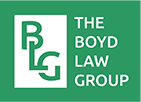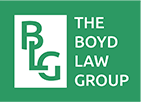In 2019, New York employees can expect to see a dramatic increase in the protections they are afforded as whistleblowers. Two bills, one originating from the Assembly (A7384) and one from the Senate (S3683), would amend New York’s Whistleblower Statutes (N.Y.L.L. §§740, 741) while simultaneously expanding the statutes’ breadth and protections.
Should this new legislation pass, potential whistleblowing employees may rest easier, as these new bills provide increased protection for those who choose to report concerns of workplace misconduct. The amendments make a number of crucial changes. Most notably, A7384 expands who is protected by the statute by including not only private employees in its definition of protected individuals, but also public and former employees who were not included previously. The bill also protects employees by eliminating the need for there to be an actual violation of the law by an employer for an employee to be protected. Instead, an employee merely needs to show that he or she “in good faith reasonably believes [an employer activity] has occurred or will occur” and “in good faith reasonably believes [that such activity] constitutes [an] illegal business activity.” This good faith requirement, adds the qualification that an employee can only be protected for bringing the suspected illegal activity to the attention of the employer (with a few specific exceptions). However, this requirement is eased by the inclusion of a requirement that employers must put employees on notice of their rights under the Whistleblower Statutes by posting a notice containing these rights in an easy to view location in the workplace.
Similarly, these new bills lower the bar required for an employee to meet the burden of proof in cases where the employee claims an adverse employment action was taken against them in retaliation for whistleblowing. Previously, an employee would have to prove that the whistleblowing was a “but-for” cause of the adverse action. To illustrate, an employee’s whistleblowing is a but-for cause if no adverse action would have been taken against the employee “but for” their reporting. Under the new laws, however, an employee must only show that his/her whistleblowing was a contributing factor in the employer’s adverse action against the employee. For example, under the new laws, an adverse action is actionable if the employee’s whistleblowing was one of the several reasons which motivated the employer to take an adverse action against the whistleblower.
In addition to expanding who is protected under New York’s Whistleblower statute and lowering the legal standards for protection, employees can expect, under the new law, to have a wider variety of remedies when faced with retaliation for whistleblowing. Among other remedies, a whistleblowing plaintiff may now seek a variety of damages if the court finds the employer acted in bad faith, including compensatory damages for lost wages, emotional distress, front pay, and liquidated damages which can double the amount of any back pay awarded. In addition to increasing the remedies a whistleblower employee can seek, the amendments also double the time period in which an employee can bring a claim, changing the statute of limitations from one to two years. The amendments additionally grant employees the right to a right to jury trial.
For employees, this new proposed law means they will have more protections if they report wrongdoing and are punished for such noble action. For employers, this certainly means it is important to listen carefully to employee reports and complaints – inaction may very well have more significant consequences under the prosed new law. At BLG we have had the privilege of working on some publicized and high profile whistleblower matters. This legislation may very well change the landscape significantly.
If you believe that you have been retaliated at work for whistleblowing, please contact The Boyd Law Group, PLLC today for confidential free case review.

